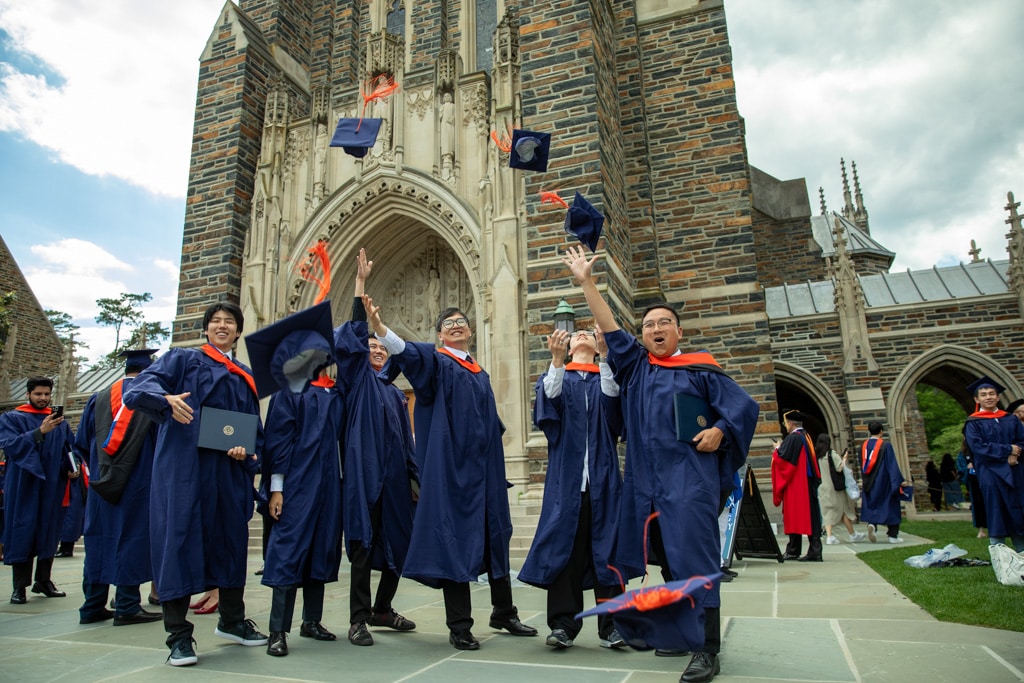Graduation with Departmental Distinction
Conduct supervised research and present results to faculty and students

Duke ECE students who distinguish themselves through supervised independent study and research and associated project reports and presentations can earn the honor of Graduation with Departmental Distinction.
This honor is recognized at the school diploma ceremony held each May.
Graduates with departmental distinction are eligible for the Mary Foote Reel Undergraduate Research Award.
Requirements
- Have a 3.5 cumulative GPA
- Complete in senior year a faculty-supervised Independent Study Project with significant Electrical & Computer Engineering accomplishment
- Demonstrate the significance of this project through a formal, written report
- Defend the project report in an oral presentation before a faculty committee
The Project Report
The report must be 10 to 20 pages, including figures and references, as well as:
- Single-spaced
- 12-point Times New Roman typeface
- Single column
When and how to submit the report:
- Typically, 10 days before the oral presentation
- Electronically, to the Director of Undergraduate Studies
Titles of Recent Projects
- Invertible Neural Networks for Inverse Kinematics
- BISTLock: Efficient IP Piracy Protection Using BIST
- Unsupervised Sleep State Detection in Mice Using a Physiologically-Based Clustering Algorithm
- Variation-Aware Delay Fault Testing
- Detecting and Classifying Short-Finned Pilot Whale Acoustics with Deep Learning
- Foosball Coding: Improving Error Tolerance in 3D Racetrack Memory

Michael Richard Gustafson
ECE Director of Undergraduate Studies, Associate Professor of the Practice

Rabih Younes
Associate Director of Undergraduate Studies, Associate Professor of the Practice in the Department of ECE

